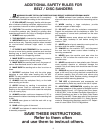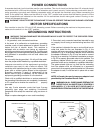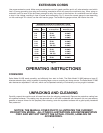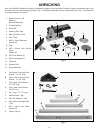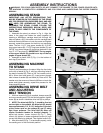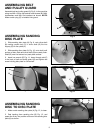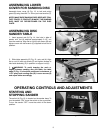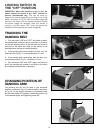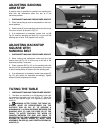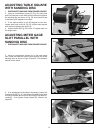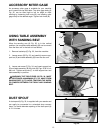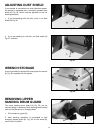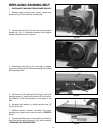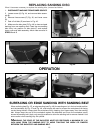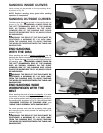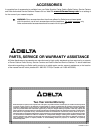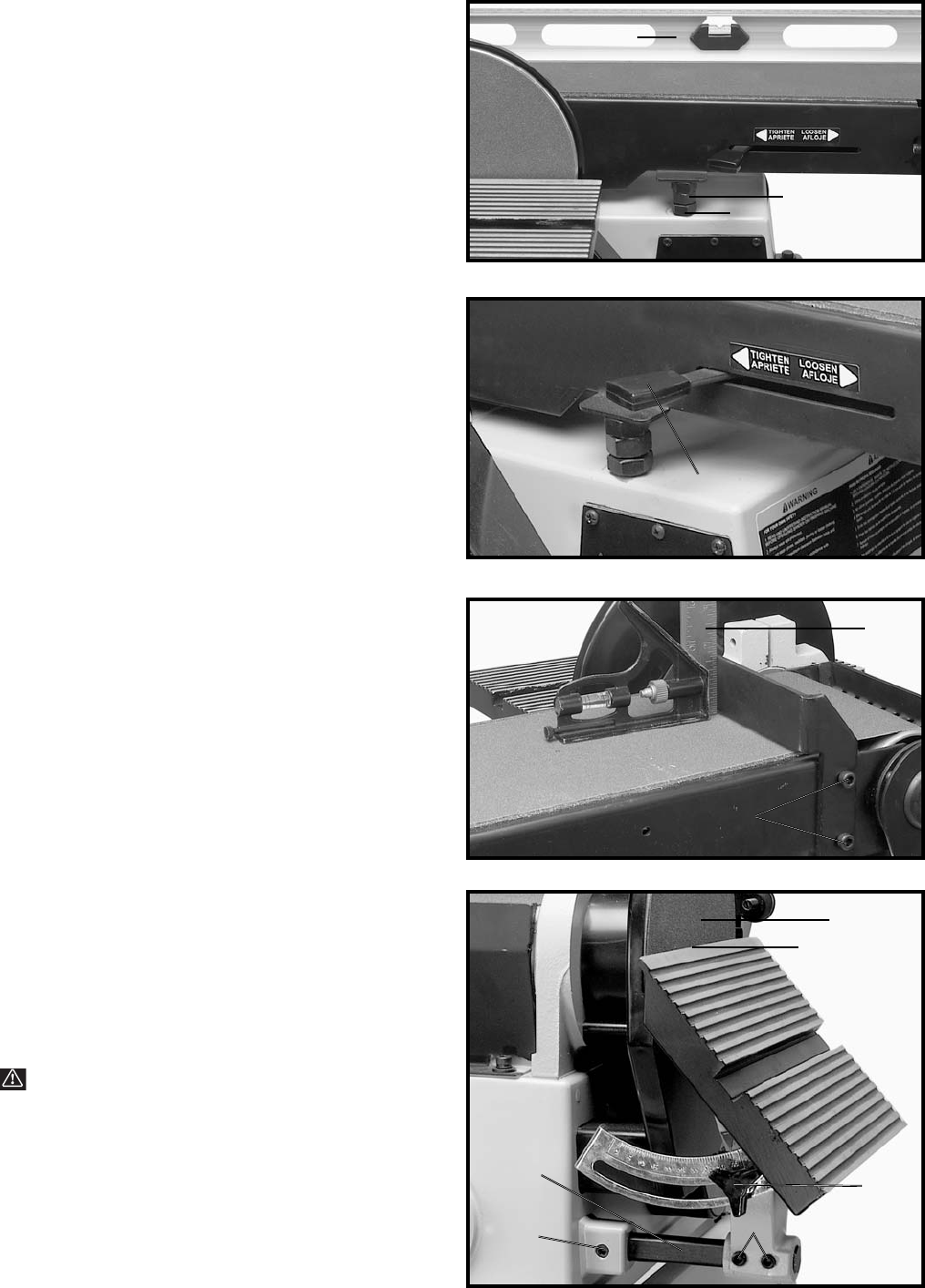
11
Fig. 24
Fig. 25
Fig. 26
ADJUSTING SANDING
ARM STOP
A positive stop is provided to position the sanding arm
level with the workbench when the arm is in the
horizontal position.
1. DISCONNECT MACHINE FROM POWER SOURCE.
2. Place the sanding arm as far as possible in the hori-
zontal position.
3. Place a level (A) on the sanding belt and check to see
if the arm is level, as shown in Fig. 24.
4. If an adjustment is necessary, loosen lock nut (B)
Fig. 24, and turn sanding arm stop (C) in or out until the
sanding arm is level. Then tighten lock nut (B).
ADJUSTING BACKSTOP
SQUARE WITH
SANDING BELT
1. DISCONNECT MACHINE FROM POWER SOURCE.
2. When making this adjustment make sure the belt
tension lever (A) Fig. 25, is all the way to the left in the
tensioned position, as shown.
3. Place a square (B) Fig. 26, on the sanding belt with
one end of the square against the backstop, and check
to see if the backstop is square with the sanding belt.
4. If an adjustment is necessary, loosen two screws (C)
Fig. 26, and adjust the backstop accordingly. Tighten
screws (C) after adjustment is made.
Fig. 27
TILTING THE TABLE
1. DISCONNECT MACHINE FROM POWER SOURCE.
2. The table can be tilted up to 45 degrees to the right
by loosening the table lock knob (A) Fig. 27, tilting the
table to the desired angle, and tightening table lock
knob (A).
3. WARNING: AFTER TILTING, THE TABLE AS-
SEMBLY MUST BE REPOSITIONED ON THE
SUPPORT ROD (B) FIG. 27, TO PROVIDE A
MAXIMUM OF 1/16 INCH DISTANCE BETWEEN THE
SANDING DISC (C), AND THE EDGE (D) OF THE
TABLE, TO AVOID TRAPPING THE WORK OR
FINGERS BETWEEN THE DISC AND TABLE. TO
REPOSITION THE TABLE ASSEMBLY, LOOSEN TWO
SCREWS (E) AND/OR SCREW (F), MOVE TABLE
ASSEMBLY ON ROD (B), AND TIGHTEN SCREWS (E)
AND/OR (F).
B
C
A
A
C
B
C
D
A
E
B
F



